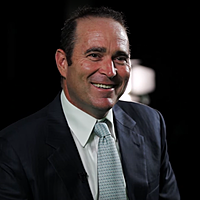Alignment – Spending Other Peoples Money

Glennon Capital
One of the things that frustrates me most is fund managers who take the “other peoples money” approach. My fundamental belief is that if you wouldn’t do something with your own money, why would you do it with someone else’s money? When we look to hire new analysts, we spend a lot of time talking to them about the personal investments they have made, how they invest their own money and their core philosophy around investing.
"If you wouldn’t do something with your own money, why would you do it with someone else’s money?"
I don’t understand technical analysis because I’m buying businesses so I have never seen the relevance.

There are fund managers I have met who don’t own a single share personally, don’t have investments in their funds and their largest asset is a residential house. I cannot understand this attitude, in the same way I cannot understand black box stock picking, people who think an algorithm can pick stocks.
What I do know is you have to read a lot of company announcements to keep informed, meet management when you find something interesting and understand that business is not a linear profit machine.
I feel the same pain as my clients when our fund underperforms. However, I feel more pain when we lose money or the fund goes backwards. Underperforming but still adding absolute value I can live with, losing money just makes me poor! My alignment is about as much as you can get.
I have always found the question of alignment interesting. I would be interested to know how much portfolio managers and analysts have invested in their own funds and what percentage of their gross wealth that represents. It came to light recently as I was having a coffee with a fund manager who told me his funds have too much money in them and none of his portfolio managers wanted to invest in them because they felt their money would be better in a smaller fund. Why would you want to invest in a manager like that?
I’m sure that there would be a far greater amount of conservatism and rational thought going into stock selection, turnover and performance if analysts and fund managers were risking more of their wealth with each investment decision they made.

4 topics

Michael has over 17 years experience in financial markets and over 15 years experience as a portfolio manager and director of several boutique investment management firms. As one of Australia’s most experienced small cap fund managers, Michael was...
Expertise
No areas of expertise

Michael has over 17 years experience in financial markets and over 15 years experience as a portfolio manager and director of several boutique investment management firms. As one of Australia’s most experienced small cap fund managers, Michael was...
Expertise
No areas of expertise